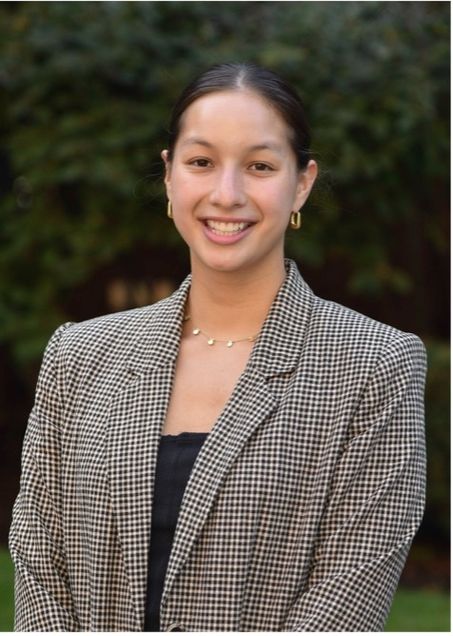2024 Outstanding Student Achievement Award: Master’s Community Service Category
 Gwendolyn Strickland ’24
Gwendolyn Strickland ’24
Gwendolyn Strickland is a master’s candidate in the Master of Science in Genetic Counseling Program. She matriculated into Boston University in Fall 2022 to pursue a dual MS/Master of Public Health degree at GMS and the School of Public Health (SPH).
Gwendolyn worked with the Boston Medical Center (BMC) Refugee Women’s Health Clinic to implement a group care model focused on case management services for recently arrived pregnant patients from Haiti. The project began as her SPH practicum. Gwendolyn hopes to take what she’s learned from this community service project and apply it to the field of genetic counseling by increasing awareness and access to genetic services for people who hold marginalized identities.
Gwendolyn’s project won her the Outstanding Student Achievement Award in the Master’s Community Service category. Read more about her work below!
Can you share a bit about the community service project that led to your recognition with this award?
I worked with the BMC Refugee Women’s Health Clinic (RWHC) to help implement a new group care model that focused on case management services for recently arrived pregnant patients from Haiti. The groups were intentionally designed to address the additional socio-economic needs of our patients that exist outside of routine prenatal care. I ended up working with the former director of the program, Anissa Dickerson.
Along with the rest of the RWHC team, we worked to expand the groups to focus on case management services, career services and work permit assistance and legal immigration resources. We then introduced the groups into the BMC Teaching Kitchen with [BMC Immigrant & Refugee Health Center Medical Case Manager] Mitsouka Exantus and [Teaching Kitchen Manager Gabrielle Simons], and hosted classes centered on cooking Haitian cuisine and meals tailored to the nutritional needs of pregnant and postpartum people. We wanted to lean on the sense of community that hosting groups could bring given the issue of isolation that many folks experience as refugees or migrants living in the family shelter system.
What inspired you to get involved with community service?
This project started as my practicum with the School of Public Health, in which I was seeking an opportunity to incorporate a public health lens into a clinical experience. It turned out to be the most amazing chance to be involved with a community that BMC uniquely serves and be able to create something tangible that had a long-lasting effect on the way that BMC was able to offer care to their patients. A lot of my professional career aspirations lie in improving access to care through program design and implementation. I think the core values of community service ended up being so interwoven into a lot of these aspects, such as working together with the community and trying to provide care in the most equitable way possible.
Can you describe a particularly memorable moment or experience you had while participating in this project?
I remember our first Teaching Kitchen class that we had and feeling so overwhelmed with immense joy and gratitude from the stories exchanged across the mothers and the families who we worked with. So much went into planning those events, and everyone on the team was so invested in these cooking classes going right so we could have the opportunity to bring the community together. Being able to hear from the people it mattered to the most that the classes were a space of happiness made us feel like it was all so worth it, and we were able to make a small difference in these patients’ lives. It’s nowhere near a solution to fixing the migrant crisis or the housing crisis that many of our patients were chronically experiencing the effects of, but this small win felt huge to us.
How do you believe your community service initiative has impacted the communities or individuals you’ve worked with?
I’d like to think that our efforts to get these groups started was just the beginning for the RWHC in terms of being able to incorporate new ways of offering care to the clinic’s patients. It can be hard to sustain these types of programs, especially through grant funding, but we were able to show that these groups had a positive impact on our patients to get more investment from [the Department of Public Health]. I think with any community, the ultimate goal is to be able to make an impact on lives on the personal and individual level, as well as to make sustainable change on the systemic level.
How do you envision continuing your community service efforts in the future, and do you have any specific projects or causes you’re passionate about pursuing?
There’s a lot of change going on right now with graduation and trying to find a job, but I’ve always envisioned, in some ways, being able to take what I’ve learned from public health and experiences like working in the RWHC into the field of genetic counseling. Significant disparities in access to genetic counseling persist among folks who hold marginalized identities compared to those who historically have had the most access to genetics. Looking forward, I would love to be able to continue to work with communities to increase awareness of and access to genetic services, especially for those who have been historically underrepresented and underserved by this field.